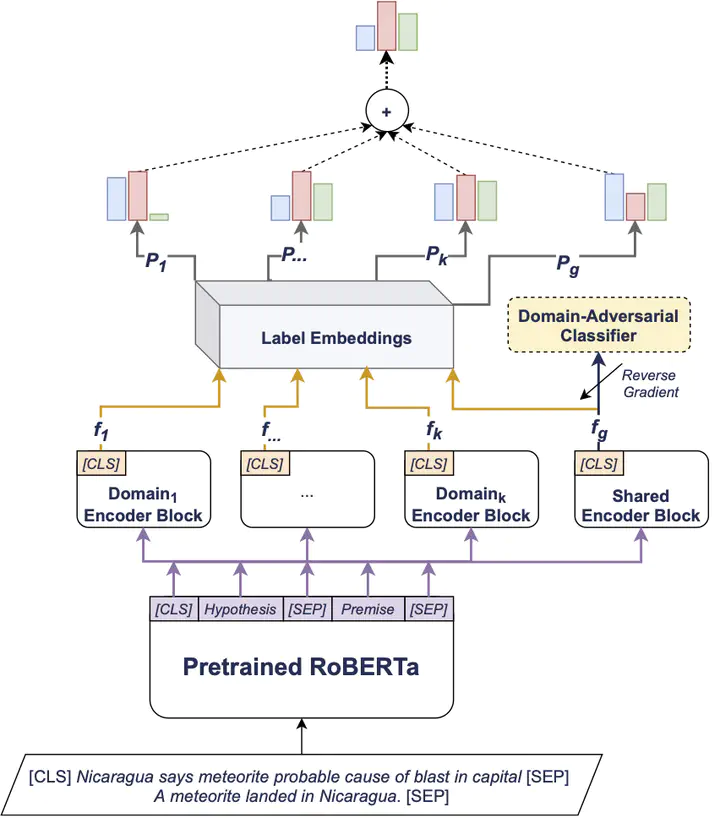
Abstract
Stance detection concerns the classification of a writer’s viewpoint towards a target. There are different task variants, e.g., stance of a tweet vs. a full article, or stance with respect to a claim vs. an (implicit) topic. Moreover, task definitions vary, which includes the label inventory, the data collection, and the annotation protocol. All these aspects hinder cross-domain studies, as they require changes to standard domain adaptation approaches. In this paper, we perform an in-depth analysis of 16 stance detection datasets, and we explore the possibility for cross-domain learning from them. Moreover, we propose an end-to-end unsupervised framework for out-of-domain prediction of unseen, user-defined labels. In particular, we combine domain adaptation techniques such as mixture of experts and domain-adversarial training with label embeddings, and we demonstrate sizable performance gains over strong baselines, both (i) in-domain, i.e., for seen targets, and (ii) out-of-domain, i.e., for unseen targets. Finally, we perform an exhaustive analysis of the cross-domain results, and we highlight the important factors influencing the model performance.